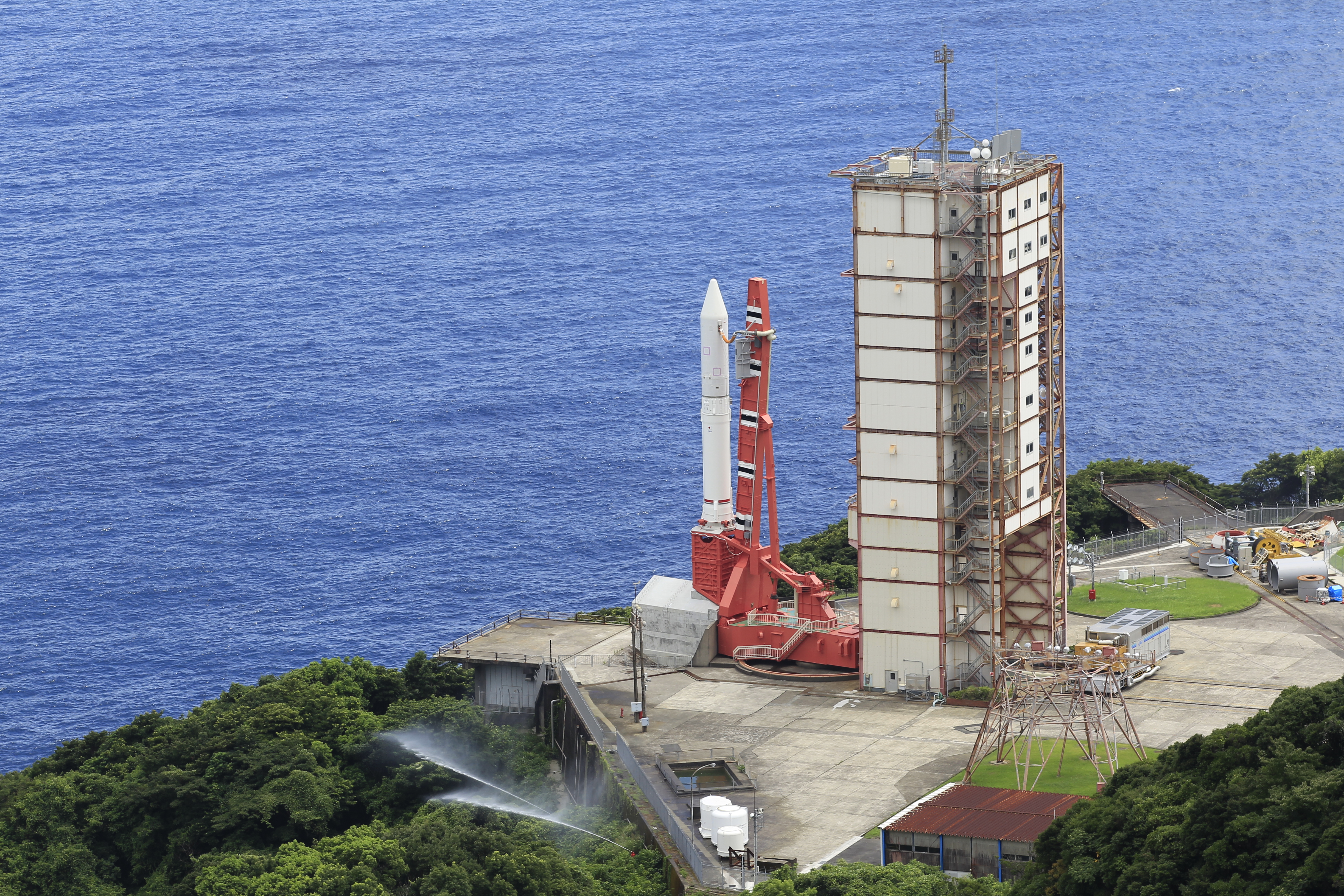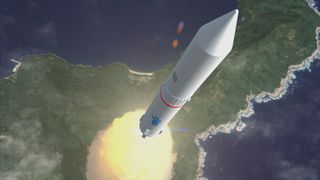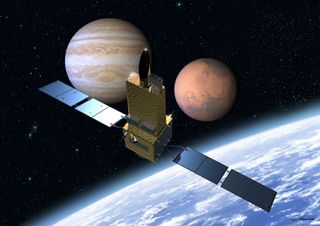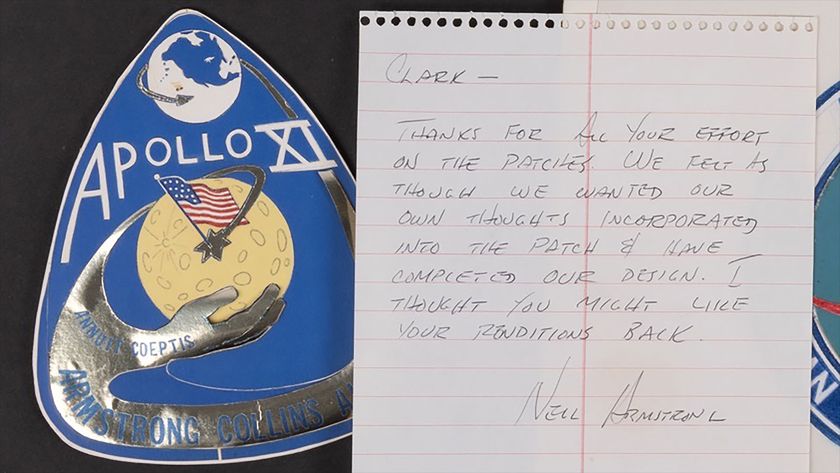Japan Cancels 1st Launch of Next-Generation Epsilon Rocket

The first launch of Japan's newest rocket, the next-generation Epsilon booster, hit a major last-minute snag Tuesday (Aug. 27), forcing the country's space agency to abort the spaceflight 19 seconds before liftoff.
The glitch occurred extremely late in the countdown for the Epsilon rocket, which was slated to blast off from a seaside pad at the Uchinoura Space Center in southern Japan. The rocket was set to launch Tuesday at 12:45 a.m. EDT (0445 GMT), which was 1:45 p.m. Japan Standard Time at the launch site.

Officials with the Japan Aerospace Exploration Agency (JAXA) counted nearly all the way down to liftoff time, but the Epsilon rocket remained on its launch pad in live webcast views provided by the space agency. [See More Photos of Japan's Epsilon Rocket]
"Today's launch was cancelled," JAXA officials wrote in a Twitter update. "More details will be reported as further information becomes available."
A later updated from JAXA stated that the launch abort occured "because an automatic stop alarm was issued as an attitude abnormality was detected approximately 19 seconds prior to the liftoff time during the automatic countdown sequence." The cause of the abort alarm is under investigation, JAXA officials added.
JAXA's Epsilon rocket is a three-stage rocket that stands 78 feet (24 meters) tall and is solid propellant. The rocket weighs 91 tons and is designed to launch satellites weighing up to 2,646 pounds (1,200 kilograms) into low-Earth orbit. The rocket's two upper stages are based on Japan's M-V rocket launch vehicle, which was retired in 2006.

For its first mission, the Epsilon rocket is carrying JAXA's Spectroscopic Planet Observatory for Recognition of Interaction of Atmosphere (SPRINT-A) satellite, an orbital observatory designed to study the other planets in the solar system. JAXA officials have touted the SPRINT-A satellite as the "world's first space telescope for remote observation of the planets such as Venus, Mars, and Jupiter from the orbit around the Earth."
Get the Space.com Newsletter
Breaking space news, the latest updates on rocket launches, skywatching events and more!
The launch was originally scheduled for Aug. 22, but was delayed to allow JAXA engineers time to address concerns with the rocket's ground support equipment.
The Epsilon rocket features autonomous systems to conduct its own status checks in order to cut down on the amount of time and people required to track the rocket's health during launch. Its launch controls are also streamlined, allowing them to be overseen by laptop computers, JAXA officials have said.
In a rocket description, JAXA officials said the Epsilon rocket is aimed at enabling more frequent rocket launches by lowering the operational costs of missions.
"Through increased launch opportunities, we anticipate that space development activity will increase," JAXA officials state in an Epsilon rocket description. "The biggest goal of the Epsilon Launch Vehicle is to make space more accessible as rocket launches are made easier."
Editor's note: This story was updated to include new comments from JAXA on the cause of the abort and correct the payload capacity of the Epsilon rocket.
Email Tariq Malik at tmalik@space.com or follow him @tariqjmalik and Google+. Follow us @Spacedotcom, Facebook and Google+. Original article on SPACE.com.
Join our Space Forums to keep talking space on the latest missions, night sky and more! And if you have a news tip, correction or comment, let us know at: community@space.com.

Tariq is the Editor-in-Chief of Space.com and joined the team in 2001, first as an intern and staff writer, and later as an editor. He covers human spaceflight, exploration and space science, as well as skywatching and entertainment. He became Space.com's Managing Editor in 2009 and Editor-in-Chief in 2019. Before joining Space.com, Tariq was a staff reporter for The Los Angeles Times covering education and city beats in La Habra, Fullerton and Huntington Beach. In October 2022, Tariq received the Harry Kolcum Award for excellence in space reporting from the National Space Club Florida Committee. He is also an Eagle Scout (yes, he has the Space Exploration merit badge) and went to Space Camp four times as a kid and a fifth time as an adult. He has journalism degrees from the University of Southern California and New York University. You can find Tariq at Space.com and as the co-host to the This Week In Space podcast with space historian Rod Pyle on the TWiT network. To see his latest project, you can follow Tariq on Twitter @tariqjmalik.


